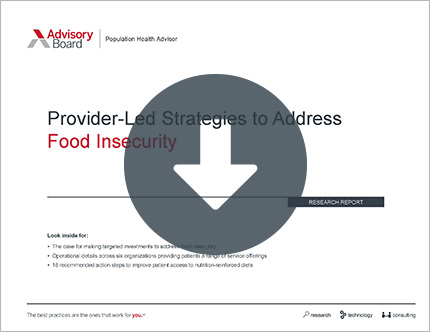Auto logout in seconds.
Continue LogoutWhile exercise plays an important part in weight management, a new study published in Current Biology suggests that our bodies automatically compensate for roughly 25% of the calories we expend during exercise—potentially undermining weight loss efforts, Gretchen Reynolds writes for the New York Times.
Study details
For the study, researchers pulled data on 1,754 adults from a larger initiative in which several dozen researchers shared metabolic data from multiple studies involving several thousand adult participants. In all of the studies, participants drank "doubly labeled water," which contains isotopes that allowed researchers to track the number of calories each participant burned throughout the day.
The researchers in the latest study examined doubly labeled water results, measures of body compositions, and basal energy expenditure, which is the number of calories an individual burns simply by existing, even if totally inactive.
Using this data, researchers were able to subtract basal numbers from total energy expenditure, enabling them to determine each individual's approximate energy expenditure from exercise and other movement, such standing, walking, and general fidgeting, Reynolds writes. Then, the researchers used statistical models to tally whether the calories burned during an activity increased the participants' daily energy expenditure, as the researchers hypothesized.
Key findings
Ultimately, the researchers discovered that, on average, most participants were only burning around 72% as many additional calories as expected based on their activity levels.
Lewis Halsey, a professor of life and health sciences at the University of Roehampton and one of the lead authors of the new study, said the body appeared to be "energy compensating for additional calories burned through activity by at least a quarter." He explained this was achieved by reducing biological activity elsewhere in the body—a reaction that may undermine efforts to lose weight via exercise.
Further, the researchers discovered an increase in energy compensation levels among people who had relatively high levels of body fat. On average, these individuals' bodies automatically compensated for 50% or more of the calories they burned while active. The researchers said the findings may indicate that it could be even more challenging for individuals who are overweight to achieve weight loss through exercise, since it appears to compound calorie compensation.
However, the study also suggests that exercise is still an important part of weight management—and the key to optimizing exercise for weight management could be understanding how your own metabolism responds to exercise.
The researchers acknowledged one potential limitation of the study is that they did not look at the participants' food intake. Rather, they investigated only participants' energy outlay and how their bodies were seemingly able to offset some of the calories they burned while exercising by curbing biological activity elsewhere in the body, writes Reynolds.
According to Halsey, "[j]ust how we unconsciously orchestrate this feat, though, and which internal systems could be most affected remain unclear," Reynolds writes.
Halsey and his colleagues speculated that the compensation occurs because our immune system operations, which require a significant amount of energy, may decrease. Another possibility is that people might grow more sedentary or fidget less on days they exercise, or perhaps some inner workings of their cells may slow, which would reduce their bodies' overall energy expenditure.
Reynolds writes that the findings align with several studies suggesting that increased activity doesn't necessarily result in high daily calorie expenditure. However, Halsey said exercise still burns more calories than inactivity—even for people whose bodies compensate for 50% or more of the calories they burn during exercise. The greater issue, he said, was acknowledging that exercise burns relatively few calories overall—and that losing weight likely will also require reduced food consumption. (Reynolds, New York Times, 9/22)

Explore best practice models for implementing programs to address food insecurity, learn from seven provider organizations that represent a broad range of food insecurity interventions, and get action steps for improving patient access to nutrition-reinforced diets.
Don't miss out on the latest Advisory Board insights
Create your free account to access 1 resource, including the latest research and webinars.
Want access without creating an account?
You have 1 free members-only resource remaining this month.
1 free members-only resources remaining
1 free members-only resources remaining
You've reached your limit of free insights
Become a member to access all of Advisory Board's resources, events, and experts
Never miss out on the latest innovative health care content tailored to you.
Benefits include:
You've reached your limit of free insights
Become a member to access all of Advisory Board's resources, events, and experts
Never miss out on the latest innovative health care content tailored to you.
Benefits include:
This content is available through your Curated Research partnership with Advisory Board. Click on ‘view this resource’ to read the full piece
Email ask@advisory.com to learn more
Click on ‘Become a Member’ to learn about the benefits of a Full-Access partnership with Advisory Board
Never miss out on the latest innovative health care content tailored to you.
Benefits Include:
This is for members only. Learn more.
Click on ‘Become a Member’ to learn about the benefits of a Full-Access partnership with Advisory Board
Never miss out on the latest innovative health care content tailored to you.
